During a rescue operation conducted in 2008 by Wildlife SOS and the West Bengal Forest Department, as many as 30 sloth bears were saved from the ‘dancing’ bear practice. Among the lot was a six-year-old bear that also bore a gaping hole in his muzzle. The cruel piercing was made with a hot iron rod, through which a rope was passed and then tugged, making the bear move in agony. Further examinations also revealed that this bear, who was later named Roshan, had a deteriorating eye condition.
Thousands of sloth bear cubs were poached mercilessly across India and the mother bears brutally killed so poachers could meet the demands created by the Kalandar community to replace the dancing bears that died or were sold off each year. To start with, a red hot iron poker would be hammered through the baby bear’s delicate muzzle, often at the tender age of 6 to 8 weeks.
A rough, thick rope would then be thrust through the oozing wound to control the bear. Then tugging of the rope through this painful wound would create a great deal of pain and would soon force the traumatised bear to cooperate and jump thereby inducing ‘dancing’ performances on demand! These bears lived at the end of a four foot long rope performing on streets for the public.
Roshan” is a word used to describe a bright, illuminating presence. After a dark past, dear Roshan was led on a path lit with love and care, where he truly reflected the meaning of his name. Today, performing as a ‘dancing’ bear has become a chapter of his life that had finally ended 16 years ago. Roshan arrived at the Agra Bear Rescue Facility (ABRF) as an undernourished bear, but his young age revived his youthful spirit as he healed.
The 22-year-old bear has now entered the geriatric phase of his life, but continues to put a smile on the caregivers’ faces with his unique and fun antics. Age, and the inadequate nutrition that he received in his formative years, unfortunately led to a decline in his vision, leaving him partially blind in both his eyes. Roshan, however, does not consider this his weakness, and can be seen tactfully using his sense of smell and touch to engage with enrichments that have been tailored to suit him best.
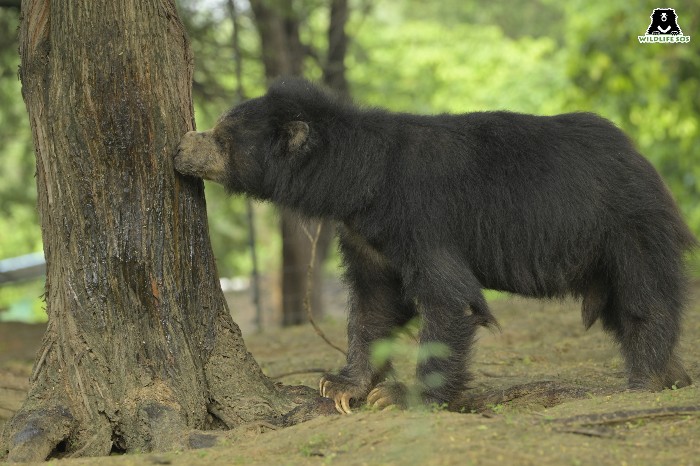
The dedicated team of caregivers and the expert veterinarians at Wildlife SOS provide special care for visually impaired sloth bears. One of the key ways of making Roshan feel comfortable is by not relocating him from his current enclosure so that he can find his way around in the familiar surroundings. Roshan, like other bears that are unable to use their sense of sight well, has an enclosure that is relatively smaller in size so that it is easier for him to map his surroundings.
In Roshan’s socialisation area, stones and logs that can hinder his movement have been removed, and the elevated structures have also been dismantled. Caregivers also pay attention to the surface Roshan walks on, ensuring that it is clean and free of mud pits. Wooden platforms in his enclosure are placed either on the ground or just one feet above it to help Roshan mount them smoothly. Roshan can also be seen spending most of his time resting on his hammock, which is installed at a lower height for him to conveniently access it.
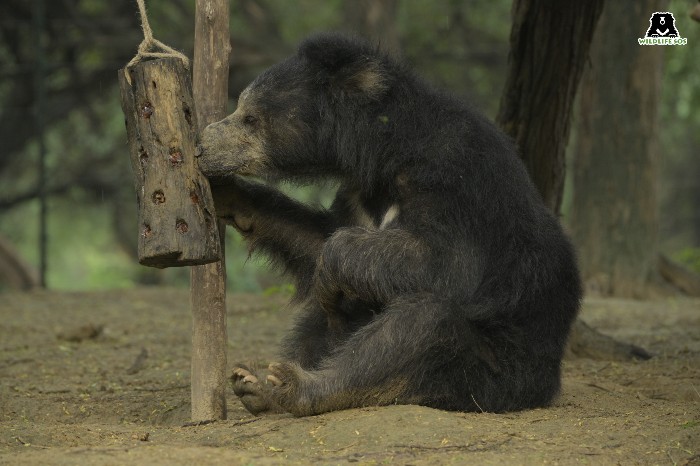
Enrichments for Roshan are designed keeping his age and vision in mind and hence, olfactory enrichments play a larger role in his daily routine. Roshan, like many of our resident bears, has a strong liking for two lip smacking delights, which is why his bamboo feeders and feeder ball enrichments are covered with honey and peanut butter! Our photographers and caregivers have seen Roshan lifting his nose up to sniff the scents of these spreads that fill the air before he begins his search for them.
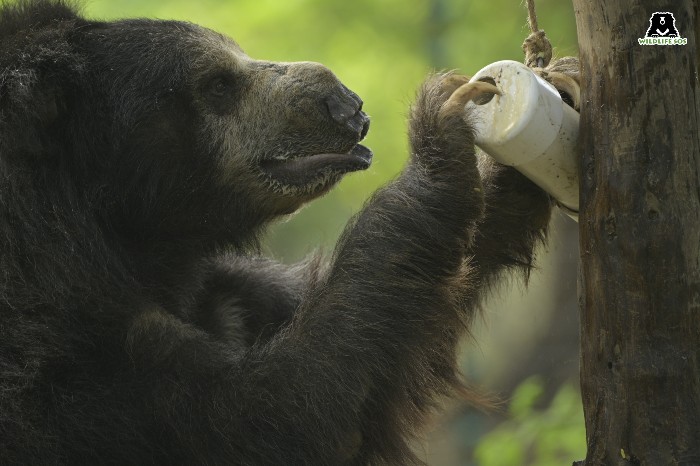
Keeping the changing seasons in mind, our dedicated staff has suitable protocols that they follow for the sloth bears for their health and upkeep. During the summer months, delectable ice popsicles are prepared for the bears to find a cool respite from the daily heat. Though Roshan prefers to spend the majority of a hot day resting in his den, he would rush out to grab hold of this frozen mix of grapes, watermelons and honey! Roshan diligently eats his porridge meal that is given twice a day, and enjoys the various treats he is provided with through the day. These include dates, jaggery, coconuts, mangoes, watermelons and jaggery rice-puff balls.
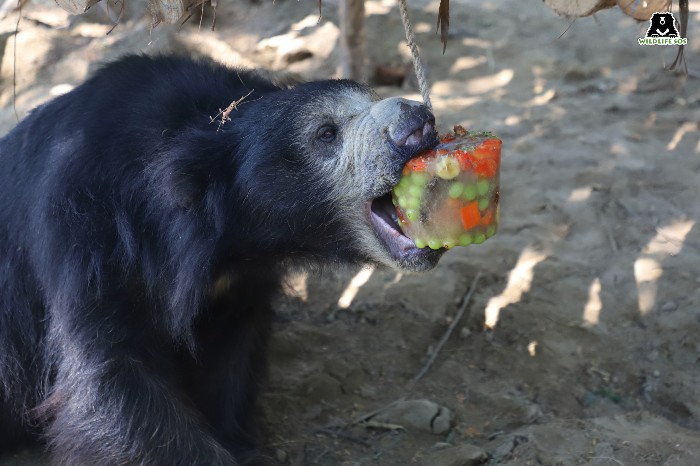
Roshan, being a geriatric bear, is not as energetic as he used to be. To help our geriatric bears remain physically active, target training sessions are conducted regularly. These sessions involve patience and cooperation by both the sloth bears as well as the caregivers. Roshan is a very responsive bear, and tempting treats rewarded to him act as incentives throughout the process. Currently, Roshan is not undergoing any specific medical treatment, however all the resident sloth bears at our centres are provided with multivitamins and supplements to improve kidney and liver function. For senior bears, these prescribed supplements are given once every 45 days. Roshan is now also receiving joint supplements to improve his bone mobility.
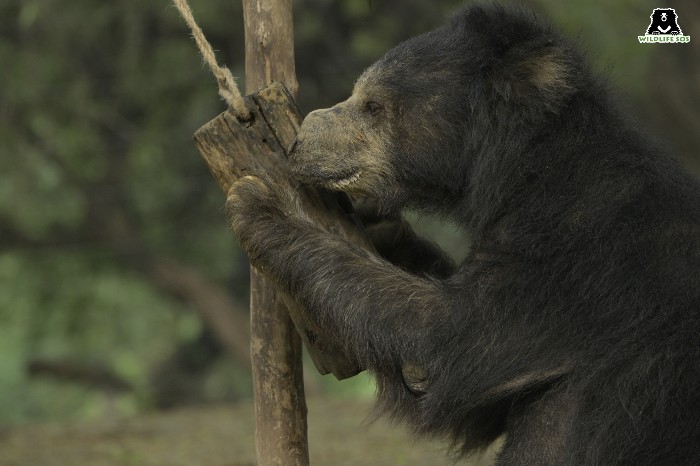
Wildlife SOS works hard to ensure that all our resident sloth bears receive the care they need and hence, we take apt measures to provide them with utmost comfort. Taking care of visually challenged sloth bears requires a sensitive approach, and our dedicated team of caregivers leave no stone unturned in order to make the bears feel calm and secure!




.jpeg)

.jpeg)


.jpg)




